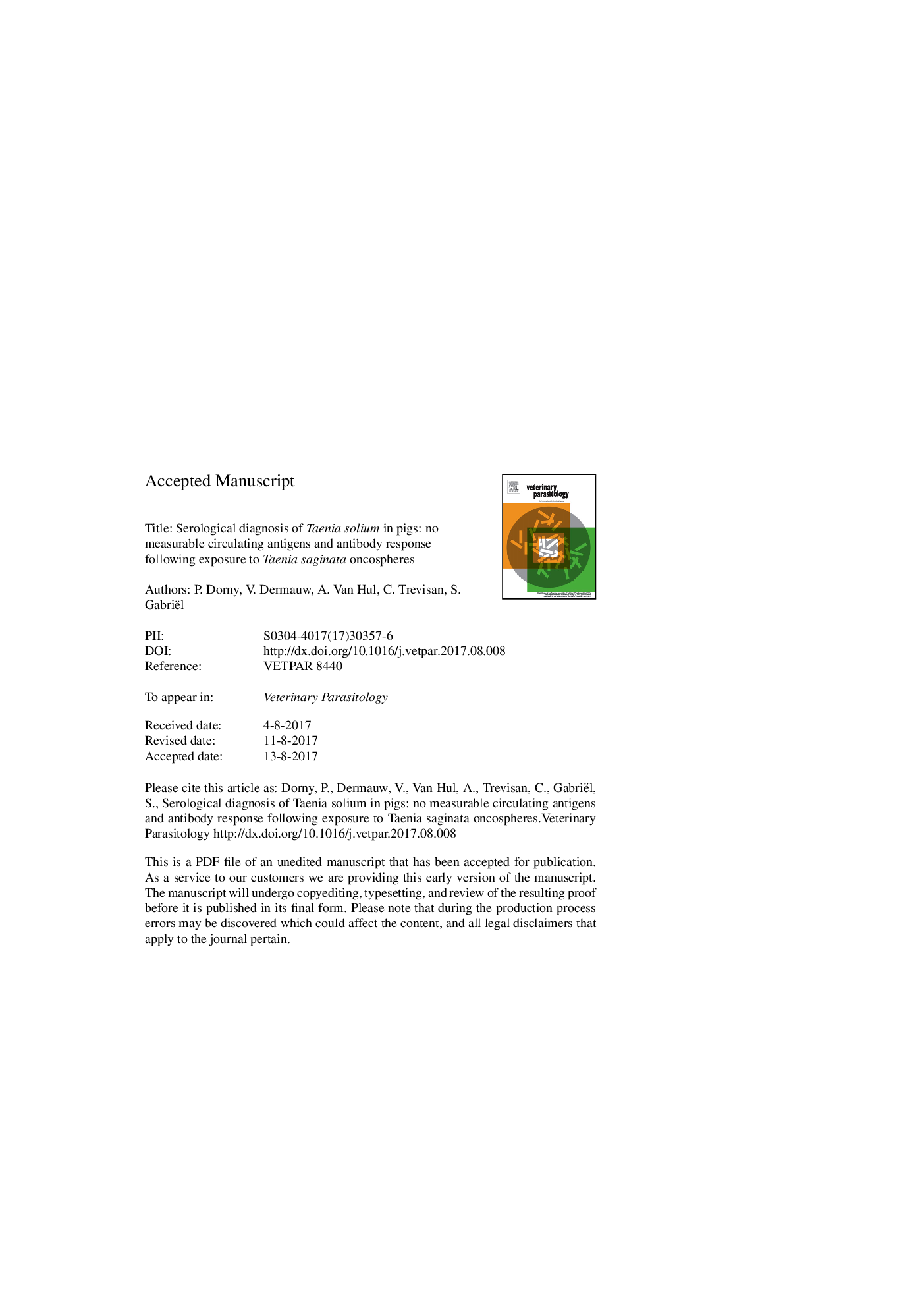| Article ID | Journal | Published Year | Pages | File Type |
|---|---|---|---|---|
| 5545689 | Veterinary Parasitology | 2017 | 11 Pages |
Abstract
Taenia solium taeniasis/cysticercosis is a zoonosis included in the WHO's list of neglected tropical diseases. Accurate diagnostic tools for humans and pigs are needed to monitor intervention outcomes. Currently used diagnostic tools for porcine cysticercosis all have drawbacks. Serological tests are mainly confronted with problems of specificity. More specifically, circulating antigen detecting tests cross-react with Taenia hydatigena and the possibility of transient antigens as a result of aborted infections is suspected. Furthermore, the hypothesis has been raised that hatched ingested eggs of other Taenia species may lead to a transient antibody response or to the presence of circulating antigen detectable by serological tests used for porcine cysticercosis. Here we describe the results of a study that consisted of oral administration of Taenia saginata eggs to five piglets followed by serological testing during five weeks and necropsy aiming at studying possible cross reactions in serological tests used for porcine cysticercosis. The infectivity of the eggs was verified by in vitro hatching and by experimental infection of a calf. One piglet developed acute respiratory disease and died on day 6 post infection. The remaining four piglets did not show any clinical signs until euthanasia. None of the serum samples from four piglets collected between days 0 and 35 post infection gave a positive reaction in the B158/B60 Ag-ELISA and in a commercial Western blot for antibody detection. In conclusion, this study showed that experimental exposure of four pigs to T. saginata eggs did not result in positive serologies for T. solium. These results may help interpreting serological results in monitoring of T. solium control programmes.
Related Topics
Life Sciences
Agricultural and Biological Sciences
Animal Science and Zoology
Authors
P. Dorny, V. Dermauw, A. Van Hul, C. Trevisan, S. Gabriël,
